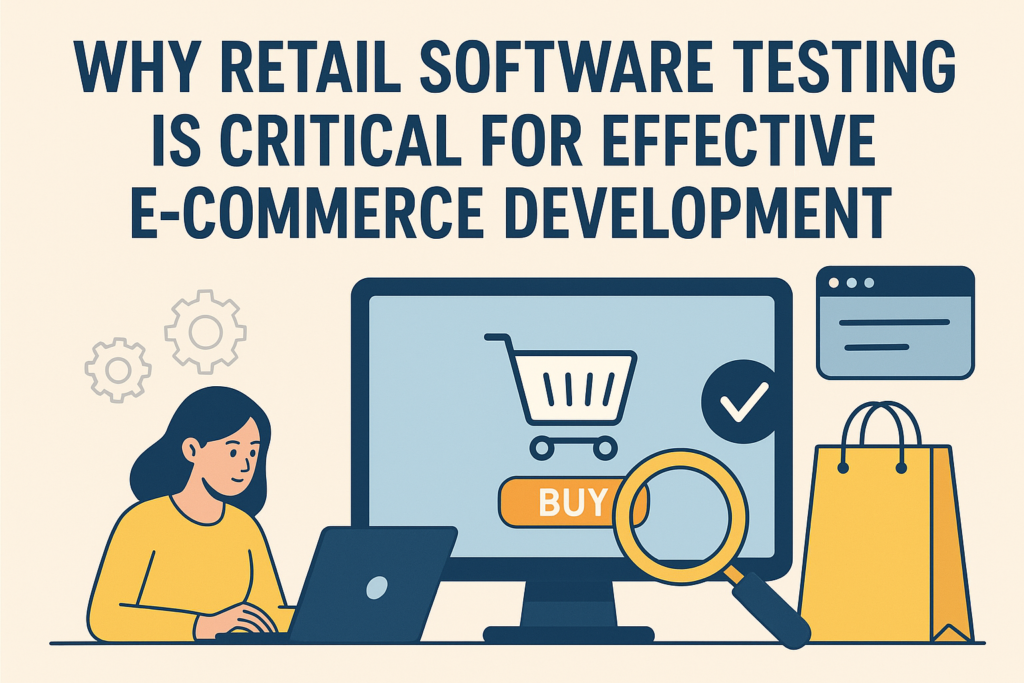Leveraging Custom Software for Effective Business Automation

In today’s fast-paced digital landscape, businesses face growing pressure to streamline operations, reduce manual effort, and improve decision-making speed. One of the most effective strategies to achieve this is business process automation. While off-the-shelf solutions may offer generic functionality, many companies are turning toward custom software to meet their unique operational demands. Leveraging custom software for business automation is no longer a luxury; it has become a necessity for organizations aiming to maintain competitiveness and operational efficiency.
Understanding Business Automation
Business automation involves the use of technology to execute recurring tasks or processes in a business where manual effort can be replaced. It spans various areas such as customer service, sales, supply chain management, accounting, and human resources. Automation aims to enhance consistency, improve accuracy, and free up human resources for higher-value tasks.
Traditionally, businesses relied on standard software packages for automation. These tools often provide general solutions but fall short when the business model deviates from conventional patterns. Herein lies the critical advantage of tailored software: it molds itself around the business rather than the other way around.
The Limitations of Off-the-Shelf Solutions
Pre-built software can offer quick implementation, but it often lacks the depth and specificity required by businesses with distinct workflows. These tools may require workarounds, third-party integrations, or significant process changes to function effectively within a company’s existing ecosystem. Moreover, licensing costs, usage restrictions, and limitations on customization can further impede growth and innovation.
Another issue with commercial software is scalability. As businesses evolve, they may find that prepackaged systems cannot scale proportionally with their needs, both in terms of user base and functionality. This leads to frequent upgrades, patches, or even complete system replacements—each carrying high costs and operational disruptions.
Why Custom Software Offers a Strategic Advantage
Custom software development allows businesses to build tools that align precisely with their operational needs. These bespoke systems are designed from the ground up to support specific processes, integrate seamlessly with other systems, and scale as the organization grows.
1. Process Alignment
Custom solutions allow businesses to automate processes without altering them to fit into a generic mold. This alignment between software and process leads to smoother operations and higher productivity. For instance, a logistics firm may require a unique dispatch scheduling system that considers local traffic data, warehouse load, and real-time driver availability—something that off-the-shelf software is unlikely to provide out-of-the-box.
2. Integration with Existing Systems
A major benefit of custom software lies in its ability to integrate with the organization’s existing IT infrastructure. Whether it’s syncing with legacy ERP systems, specialized manufacturing equipment, or modern cloud-based platforms, custom tools can act as the glue that binds disparate systems into a coherent whole. This enables better data flow, fewer manual handovers, and consistent reporting across departments.
3. Enhanced Data Utilization
Custom-built software can be designed to capture and process data in a way that suits the business best. It enables organizations to collect, interpret, and act on real-time data, which can significantly enhance operational visibility. For example, custom dashboards can provide executives with instant insights into key performance indicators (KPIs), making it easier to identify bottlenecks or inefficiencies.
4. Improved Security and Compliance
Off-the-shelf software often targets a broad user base, which means it may not be tailored to the specific compliance requirements of a particular industry. Custom solutions, on the other hand, can be built with security features that align with regional regulations, data protection laws, and internal governance standards. Businesses can also control where and how data is stored, which is essential in sectors like finance or healthcare.
5. Long-Term Cost Efficiency
Though initial development costs may be higher, custom software often delivers better return on investment over time. Unlike subscription-based services that accrue monthly fees, custom software is owned by the business. It also reduces the need for repetitive training, unnecessary features, or multiple overlapping tools. With proper maintenance, a tailored system can serve an organization for years with minimal disruption.
Real-World Application Scenarios
Custom software has already transformed operations across multiple industries. In manufacturing, automated scheduling systems have improved machine utilization and reduced downtime. In retail, customized inventory management platforms have helped align stocking levels with real-time consumer demand. Even in service industries, bespoke CRM tools are optimizing customer interactions by offering smarter follow-up mechanisms and detailed client histories.
A mid-sized e-commerce business, for instance, might automate its entire order-to-delivery pipeline using custom-built solutions—integrating the online storefront, payment gateway, inventory system, warehouse logistics, and customer service into one unified platform. Such automation not only enhances speed and accuracy but also ensures a seamless customer experience.
Challenges and Considerations
Despite its advantages, implementing custom software requires careful planning. The development process involves time, clear scope definition, and continuous stakeholder involvement. Businesses must collaborate closely with developers to ensure the software meets performance, usability, and scalability expectations.
It is also critical to consider future adaptability. A well-designed custom system should allow for new feature additions, regulatory changes, and shifts in business strategy. Agile development methodologies are often employed to build flexibility into the software lifecycle, allowing iterative improvements based on user feedback and market shifts.
The Strategic Role of Custom Software in Business Transformation
As automation continues to define the future of work, businesses that fail to adopt a tailored approach risk lagging behind. While generic automation tools may offer temporary relief, they rarely provide the depth, resilience, or adaptability needed for long-term growth. Custom software development plays a strategic role by not only addressing immediate inefficiencies but also laying the groundwork for innovation, scalability, and competitive differentiation.
Automation is not just about reducing headcount or speeding up processes—it’s about reshaping the business model to be more intelligent, responsive, and future-ready. Custom software provides the precise instruments needed to achieve this transformation.
Conclusion
Business automation is no longer a trend—it is a foundational component of modern enterprise strategy. Organizations must move beyond generic software solutions and consider the long-term advantages of custom-built systems. By doing so, they can unlock efficiencies, strengthen control over processes, and build a technological foundation that grows in tandem with their ambitions. For any business serious about achieving sustainable automation, custom software is not just a tool—it is a strategic asset.

Why Retail Software Testing is Critical for Effective E-commerce Development?

How Sales Teams Increased Productivity with Parallel Dialers

Curtain Dry Cleaning and Leather Sofa Cleaning – Reliable Care by Duo Nini

The Complete Guide to Growing on Twitch: Should You Buy Twitch Followers?

How Technology Is Changing Addiction Recovery in the Digital Age.

Why Retail Software Testing is Critical for Effective E-commerce Development?

The Complete Guide to Growing on Twitch: Should You Buy Twitch Followers?

How Sales Teams Increased Productivity with Parallel Dialers








